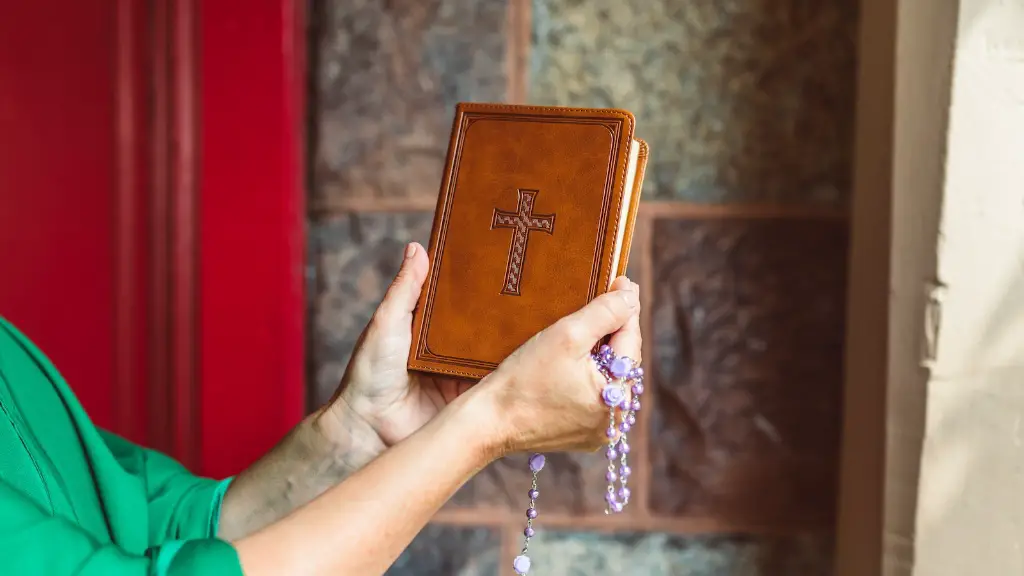As the world’s poorest people continue to suffer from the deprivation of basic necessities due to increasing global inequality, people living without shelter and safety are a sadly inevitable by-product of this. In the book of James, the bible offers us instructions on how to respond to these people: “Pure, undefiled religion in the sight of our God and Father is this: to visit orphans and widows in their distress, and to keep oneself unstained by the world” (James 1:27).
The bible has much to say about providing protection and shelter to vulnerable people, demanding justice for those who are taken advantage of, and taking care of your neighbour. The book of Leviticus enjoins us: “Do not take advantage of a widow or an orphan. If you do and they cry out to me, I will certainly hear their cry” (Leviticus 22:22).
The bible tells us that we should not let judgement pass on the homeless and destitute, as expressed in Matthew 25: “I was hungry, and you gave me something to eat, I was thirsty and you gave me something to drink, I was a stranger and you invited me in, I needed clothes and you clothed me”. Similarly, Deuteronomy 15:7 tells us to provide for our less fortunate neighbours: “If there is a poor man among your brothers in any of the towns in the land that the Lord your God is giving you, do not be hardhearted or tight-fisted toward your poor brother.”
The book of Proverbs proclaims the importance of loving our neighbour as ourselves, suggesting that not only should we provide physical support, but also compassionate understanding: “Speak up for those who cannot speak for themselves, for the rights of all who are destitute. Speak up and judge fairly; defend the rights of the poor and needy” (Proverbs 31:8-9). This speaks to the economic and social injustices that create poverty and homelessness, and the importance of pursuing justice for all disadvantaged members of society.
It is clear from these passages in the bible that it is not just an individual’s responsibility to provide support for those in need, but more broadly a collective obligation held by society as a whole. In this regard, the bible also speaks to the importance of compassion, humility, and social responsibility as integral components in dealing with global problems such as homelessness. In the book of Isaiah we read: “Woe to those who make unjust laws, to those who issue oppressive decrees, to deprive the poor of their rights and withhold justice from the oppressed of my people, making widows their prey”.
The bible speaks to our influence as a society, demanding that we take responsibility for the homeless and needy. Much more than individual acts of kindness, this calls for us to create sustainable solutions to poverty and homelessness by creating laws and policies that are just, fair and equitable. We need to act as one, as individuals and leaders, to eradicate the systems of oppression that contribute to the marginalisation of the most vulnerable people in our society.
What Can We Do?
It is not enough to sympathise or even empathise — we must actually commit to implementing practical solutions. We need to invest in housing and services that provide long-term solutions to homelessness. We must to repeal discriminatory laws and ensure that all citizens are able to access education and employment regardless of their housing status or ethnicity. We must create de-criminalisation laws, ending the criminalisation of homelessness, and work with the homeless population to provide job training, mental health and substance abuse services.
Every individual, organisation, and government should consider how they can best contribute to solving this problem, whether big or small. It is ultimately up to us all to decide how we add value to the world, upholding and protecting the rights of our homeless and marginalised brothers and sisters.
Organisations Addressing Homelessness
There are numerous organisations tackling homelessness on local, national, and global levels. Some of these organisations have been around for decades; others are brand new and using innovative models. These organisations are providing food, shelter, healthcare, legal services, and more to those without a safe place to stay. Some of them focus on prevention, helping people find jobs and stable housing before they become homeless. Others focus on helping people already living on the streets to access resources, such as “street medicine” teams and mobile showers.
A few examples of organisations building this work include the International Rescue Committee, Covenant House, Volunteers of America and the National Alliance to End Homelessness. They are committed to improving the lives of people experiencing homelessness and providing them with the resources they need to break the cycle.
The Role of Governments and Communities
Ending homelessness is not just the responsibility of large organisations and governments. Change is also needed at local, small-scale level to ensure our streets, cities and neighbourhoods are safe for everyone. Local organisations, advocacy groups and individuals all have an important role to play in addressing homelessness. This could include campaigns to support the homeless, connecting individuals to local shelters or soup kitchens, or gathering resources to provide essential aid. Communities should be empowered to come together to create a more compassionate environment and greater network of support.
It is also up to local governments to create policies and regulations that will prevent homelessness, and provide support and care for those already on the streets. Governments should focus on long-term strategies to tackle the root causes of homelessness, such as investing in housing, services, and other forms of assistance. They should follow up with practical solutions and effective structures that meet the needs of each unique city or community.
Putting Faith Into Action
Ultimately, the bible gives us a call to action to show love and compassion to those who are most vulnerable in our society. We need to start by looking inward and assessing how we can best serve our homeless brothers and sisters. Taking into account economic, political, and social inequalities, practical support is essential. It is the duty of governments, individuals, and faith-based organisations to join together to build a better, just and equitable world – one that no longer turns a blind eye to those without a home.
Breaking The silence and Talking About Homelessness
Despite the urgency of this issue, it is not often talked about in public discourse. Homelessness is too often ignored or thought of as a distant issue. There is a sense of shame attached to being homeless and this often stops people from talking openly about it. This silence must end. We need to break the stigma by talking openly and honestly about the realities of the epidemic, and how we can work together to address it.
In order to make real progress, we must all be willing to challenge ourselves and talk bravely about this issue. We must be willing to listen to those who are living on the streets, tell their stories and share their struggles to create a more compassionate and understanding society.
Giving a Voice to the Homeless
It’s essential that any policies or programs put in place to address homelessness are informed by those with direct experience of homelessness. Seeking out the input of homeless individuals and communities is vital if we want to ensure that our efforts are effective. This is an opportunity to learn more about the various factors that lead to homelessness and to ensure that the solutions we are proposing are relevant and responsive to the specific needs of those living in the streets.
Giving the homeless a voice by properly engaging them in the design of these solutions will ensure that they are not simply derided as “the homeless”, but seen instead as vibrant individuals with unique experiences and stories to share. From engaging in conversations with them to designing programs with them, our shared responsibility is to lift up the voiceless and make sure their stories are heard and that their needs are met.
Conclusion
The bible sets a lofty standard for our moral obligations towards those in hardship, and many organisations work hard to provide tangible solutions to those who are homeless and marginalised. Governments have a moral obligation to provide effective and supportive housing and employment policies. It is the responsibility of us all, at both an individual and collective level, to ensure that those without a safe place to stay are provided care and dignity.




